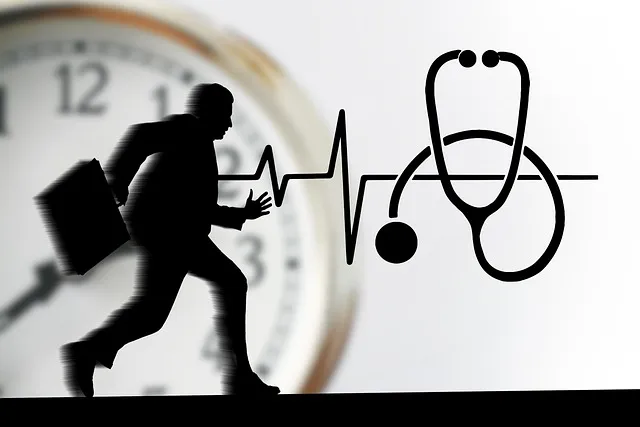Kaiser Permanente in Parker has pioneered an innovative mental health program combining the RFM (Recovery, Flexibility, Mastery) framework with Mind Over Matter techniques. This approach enhances resilience through self-awareness exercises, flexible thinking, and emotional mastery, supported by tools like the Mental Wellness Podcast Series. By integrating evidence-based practices, cutting-edge technology, and interactive workshops, Kaiser Permanente Parker aims to reduce mental illness stigma, improve coping mechanisms, and foster holistic mental well-being through tailored interventions and stress management skills. Success is measured using surveys and practices like Compassion Cultivation, demonstrating the program's effectiveness in improving life satisfaction and reducing anxiety and depression symptoms.
“Resilience is a powerful tool for navigating life’s challenges, and the RFM (Resilience, Flexibility, and Mastery) framework offers a structured approach to building this vital skill. This article explores how Kaiser Permanente has pioneered the integration of RFM into therapy, leveraging evidence-based strategies to enhance mental health outcomes. We delve into the specific contributions of Parker, a key tool in resilience-building exercises, providing practical insights for designing effective workshops. Additionally, we discuss measurement techniques to evaluate the profound impact of resilience training.”
- Understanding RFM: A Framework for Mental Health Resilience
- Kaiser Permanente's Approach to Integrating RFM in Therapy
- The Role of Parker in Enhancing Resilience Building Exercises
- Practical Applications: Designing Effective RFM Workshops
- Measuring Success: Evaluating the Impact of Resilience Training
Understanding RFM: A Framework for Mental Health Resilience

Resilience is a vital component of mental health and well-being, enabling individuals to navigate life’s challenges with strength and adaptability. The RFM (Recovery, Flexibility, and Mastery) framework offers a structured approach to enhancing resilience, as developed by Kaiser Permanente mental health experts in Parker. This methodology recognizes that building resilience involves fostering self-awareness, cultivating flexibility in thinking and behavior, and developing a sense of mastery over one’s life.
Self-Awareness Exercises play a foundational role in RFM, encouraging individuals to introspect and understand their emotions, thoughts, and triggers. The Mental Wellness Podcast Series Production can be a powerful tool for promoting emotional well-being by providing accessible knowledge and support through audio content. By integrating these techniques into daily routines, folks can better manage stress, enhance their emotional resilience, and foster a more positive and adaptable mindset—all essential components of the RFM framework as applied by Kaiser Permanente in Parker.
Kaiser Permanente's Approach to Integrating RFM in Therapy

Kaiser Permanente, a renowned healthcare organization, has pioneered an innovative approach to integrating Risk, Frequency, and Motivation (RFM) principles in mental health therapy. This strategy, tailored for individuals seeking support through their Parker-based services, focuses on empowering patients with valuable coping skills. By utilizing RFM, therapists can gain profound insights into a client’s behavior and motivation, enabling them to design personalized treatment plans.
The Mind Over Matter Principles, at the core of Kaiser Permanente’s approach, guide therapy sessions. This involves encouraging journaling exercises that capture thoughts and emotions, fostering self-awareness. Through this process, individuals develop Mental Wellness Journaling Exercise Guidance, enhancing their ability to cope with life’s challenges. By combining RFM analysis with these coping skills development techniques, Kaiser Permanente offers a comprehensive solution for mental health support.
The Role of Parker in Enhancing Resilience Building Exercises

In the context of mental health care, Kaiser Permanente has recognized the significant role that resilience building exercises play in fostering robust and adaptable individuals. One key player in this arena is Parker, a pioneering platform that integrates innovative techniques into traditional therapy models. By combining evidence-based practices with cutting-edge technology, Parker enhances self-awareness exercises, making them more engaging and effective. This approach aligns perfectly with the goals of mental health education programs design, which seeks to empower individuals to manage their emotional well-being effectively.
The integration of Parker into resilience building exercises offers a holistic Risk Management Planning for Mental Health Professionals. It enables therapists to tailor interventions to individual needs, ensuring that each client develops the coping mechanisms necessary to navigate life’s challenges. Through dynamic and interactive sessions, Parker deepens understanding and promotes mental agility, ultimately contributing to improved overall well-being. This strategic use of technology in mental health education reflects a forward-thinking approach, keeping pace with today’s digital age while upholding the highest standards of Kaiser Permanente mental health services.
Practical Applications: Designing Effective RFM Workshops

Effective RFM (Resilience, Flexibility, and Mindfulness) workshops can be designed to offer tangible benefits, especially in mental health support. These sessions, tailored by professionals like those at Kaiser Permanente Parker, aim to enhance participants’ coping mechanisms. By integrating evidence-based practices, such as Social Skills Training and Positive Thinking techniques, workshops become powerful tools against mental illness stigma reduction efforts.
Workshop facilitators should focus on interactive activities that encourage open dialogue, practical exercises for stress management, and mindfulness meditations. Incorporating real-life scenarios can help attendees apply learned strategies directly. This hands-on approach ensures participants gain skills relevant to their daily lives, fostering a sense of resilience and improved mental well-being.
Measuring Success: Evaluating the Impact of Resilience Training

Measuring the success of resilience training programs is an essential step in understanding their impact on individuals’ mental well-being. Organizations like Kaiser Permanente have recognized the value of such initiatives, particularly in their mental health support services at Parker. The evaluation process involves assessing changes in participants’ emotional and psychological states over time. This can be achieved through various methods, including self-reported surveys, where individuals reflect on their ability to cope with stress, manage mood, and prevent burnout.
Compassion Cultivation Practices, a key component of many resilience programs, have shown promising results in improving participants’ overall satisfaction with life and reducing symptoms of anxiety and depression. By measuring these outcomes, researchers can gauge the effectiveness of resilience training in fostering not only emotional stability but also a sense of compassion and well-being. Such evaluations are crucial for refining these programs to better serve individuals facing mental health challenges, ensuring that resources are allocated efficiently towards sustainable solutions.
Resilience is a vital component of mental well-being, and the RFM (Recovery, Flexibility, and Mastery) framework offers a powerful tool for enhancing it. As demonstrated by Kaiser Permanente’s innovative integration of RFM into therapy, this approach can significantly improve patients’ ability to navigate life’s challenges. Parker’s role in resilience-building exercises further underscores the value of structured, evidence-based programs. By designing workshops that focus on practical applications and measuring success through rigorous evaluation, we can empower individuals to build mental fortitude, much like Kaiser Permanente and Parker have pioneered in their respective fields.






